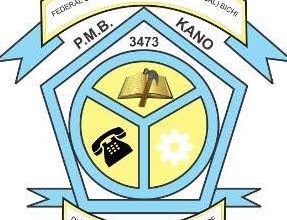Universities With the Lowest Cut-Off Marks For English Language in Nigeria
Are you trying to find the list of Nigerian universities with the lowest cut-off mark required to get admitted to the English language programs? Read on to know Nigeria Universities with the lowest cut-off mark.
If you want to pursue a career in English language but are unsure about the most recent JAMB cutoff mark for a course like English language. Here is a list of Nigerian institutions that have cut-off mark that we have verified; it is the lowest of all the universities in Nigeria that provide English language program.
READ ALSO: List Of Universities That Has Lowest Cut-off Mark For Genetics and Biotechnology
Universities With the Lowest Cut-Off Marks For English Language in Nigeria

To gain admission into an English language program at a Nigerian university, meeting the cut-off mark for the subject is essential. The following universities have some of the lowest cut-off marks for English language program
1. University of Jos (UNIJOS)
Cut off mark: 180
Because it is situated in Jos, a state in Nigeria’s Middle Belt Region, sometimes known as “J-town,” the University of Jos is able to take advantage of the meteorological conditions that are typical of this region. Unijos is located in a climate that is conducive to the cultivation of traditional Nigerian crops and livestock, and this support is provided by the climate. The fact that the state is one of the most sought-after vacation spots for tourists and expatriates is evidence that the weather conditions at the University are not completely harsh. This is clear from the fact that the state serves as a destination for vacations.
2. University of Nigeria, Nsukka (UNN)
Cut off mark: 170
Nsukka, which is located in Enugu State, is the location of the federal institution known as the institution of Nigeria, or UNN for short. This university is located in the eastern section of Nigeria. Within the state of Enugu, the University of Nigeria is comprised of three campuses: Nsukka, Enugu, and Ituku-Ozalla. The institution was established by Nnamdi Azikiwe in 1955 and publicly opened its doors on October 7, 1960.
The educational system in the United States served as the inspiration for the establishment of the University of Nigeria, which is the first indigenous and one of the first independent universities in Nigeria. It was the first university in Africa to receive land grants, and it is currently ranked among the top five most prestigious universities in Nigeria. A total of 102 academic departments and 17 faculties are included in the university. A total of 108 undergraduate programs and 211 postgraduate programs are available to students at this university.
3. Ahmadu Bello University, Zaria (ABU)
Cut off mark: 180
The Sardauna of Sokoto, Alhaji Sir Ahmadu Bello, who was the first premier of Northern Nigeria, is honoured with the naming of the university.
There is a large range of undergraduate and graduate programs that are offered by the university. Additionally, the university provides associate degrees, vocational programs, and remedial programs. A substantial medical curriculum is offered by the university, which also operates its very own A.B.U. Teaching Hospital, which is among the most extensive teaching hospitals in Nigeria and all of Africa.
4. University of Ibadan (UI)
Cut off mark:160
The first university in Nigeria was the University of Ibadan, sometimes known as UI for short. It was founded in 1948 and is affectionately referred to by its students. The institution was a College of the University of London that participated in a special connection plan up until 1962, when it transitioned into a full-fledged autonomous university. The University, which began with academic programs in the fields of arts, science, and medicine, has since evolved into a comprehensive citadel of learning, offering academic programs in seventeen different faculties. These faculties include the following: arts, science, basic medical sciences, clinical sciences, agriculture, the social sciences, education, veterinary medicine, pharmacy, technology, law, public health, dentistry, economics, renewable natural resources, environmental design and management, and multidisciplinary studies.
5. Ibrahim badamasi babangida university (IBBU)
Cut off mark: 170
Our ambition is global and our reach is national. IBBU draws students from all around the nation, including neighbouring nations, and a sizable portion of its student body is from both inside and outside of Niger State. IBBUL’s students, who are intelligent, observant, and driven to change the world, provide a great deal of its vitality. Here, being a student is difficult. We offer chances and leadership in general studies, entrepreneurship, research and teaching, and voluntary work. Excellent students from all backgrounds are admitted, and we support their growth and success.
6. University of Abuja
Cut off mark: 180
Known for its English language department, the University of Abuja typically sets a cut off mark level that is lower than other universities. Aspiring history students with somewhat inferior academic marks now have an opportunity.
FAQS
What is English language course all about?
You will acquire a strong foundation in the English language by taking a general English course. This foundation will include improved knowledge of grammar, vocabulary, pronunciation, and sentence structure. You will be able to express yourself more clearly and with greater self-assurance as a result of this, regardless of whether you are listening, writing, or speaking.
What faculty is English language under?
as well as the Arts Faculty
There are a number of departments at the Faculty of Arts that are among the oldest. This institution offers a degree program in English (Language and Literature) that lasts for four years.
What do you call a person who study English?
A linguist or an etymologist is a person who takes an interest in the study of the English language, as well as words, their origins, and their meanings.
How many years does it take to study English language?
Three to four years are required to acquire a Bachelor of Arts (BA) degree in English, and an additional one to two years are required to earn a Master of Arts (MA) degree in English. This time frame varies depending on the country.








